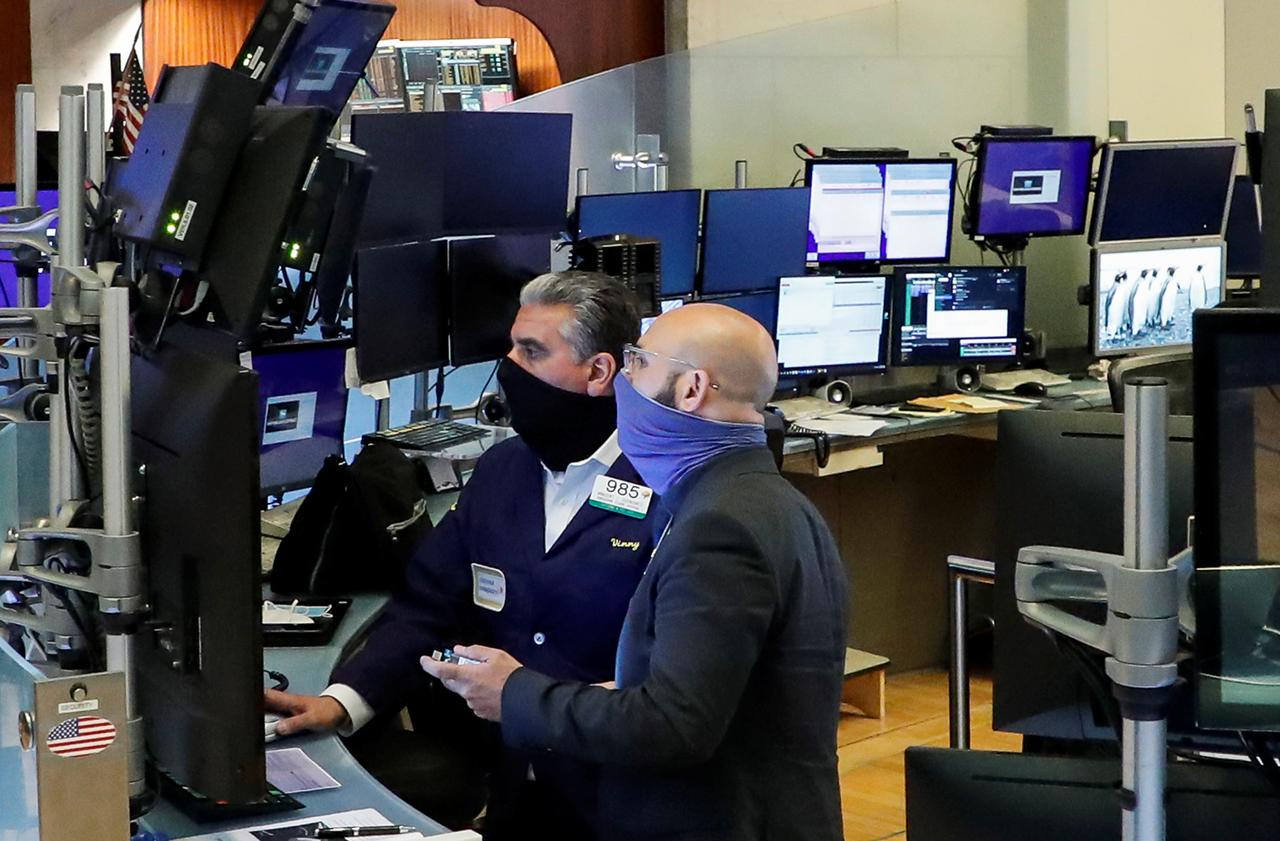NEW YORK – U.S. companies are preparing to open their books on a quarter that is set to show the biggest earnings fall since the financial crisis, leaving investors looking for light at the end of the tunnel.

The season unofficially begins on Tuesday with results from some of the biggest U.S. banks. Analysts expect S&P 500 companies overall to report a 43.9% drop in year-over-year earnings for the second quarter, when the coronavirus took its biggest toll on companies. Earnings fell 12.8% in the first quarter, according to IBES data from Refinitiv.
It would be the second-biggest quarterly earnings drop in IBES data going back to 1968, trailing only 2008’s fourth-quarter fall of 67% when banks and other major lenders were hit at the height of the subprime mortgage crisis.
“It’s widely assumed at this point that earnings for Q2 are going to be pretty much a disaster,” said Willie Delwiche, investment strategist at Baird in Milwaukee.
As a result, many on Wall Street are looking past this quarter’s earnings results. The S&P 500 is now trading at 22 times forward earnings, well above the 19 times earnings it reached when it hit a record high in February. Overall, the index is up more than 40% from its March 23 closing low on the back of stimulus measures from the Federal Reserve and U.S. government.
Earnings are expected to turn around in 2021, but investors will be looking for signs that the profit trend is improving.
That is especially important as many companies have been pulling guidance, giving analysts and investors little information on the outlook for earnings.
Second-quarter outlooks from S&P 500 companies totaled just 62 as of Wednesday, far below the 171 average number of quarterly pre-announcements going back to 1997, based on Refinitiv data.
Moreover, in recent months, some investors had begun to speculate on whether companies globally may report earnings before interest, taxes, depreciation, amortization – and coronavirus, or “EBITDAC,” which would add to the uncertainty surrounding the profit picture.
Worries have been mounting as states reopen and new coronavirus cases increase in parts of the United States, forcing some states to reverse course and shut businesses down again.
Still, another stimulus bill could boost earnings. Negotiations over a new relief bill had been expected to pick up in July.
Nicholas Colas, co-founder of DataTrek Research, said earnings expectations could be too low if Congress passes further economic stimulus this month.
Though not as bad as the second quarter, third- and fourth-quarter earnings still look pretty dire. Analysts see a 24.7% year-over-year decline in earnings for the third quarter and a 13.1% fall in the fourth, while first-quarter 2021 earnings are expected to jump 12.4%, based on Refinitiv’s data.
(GRAPHIC: U.S. quarterly profit performance since 1968 – here)
(GRAPHIC: Four biggest U.S. quarterly earnings declines – here)
All 11 S&P 500 sectors are slated to see a decline in earnings for the second quarter, with energy, consumer discretionary and industrials among the hardest hit, but utilities and technology showing the smallest declines.
Sandy Villere, a portfolio manager at New Orleans-based Villere Funds, said he is increasingly focused on companies that have the ability to give earnings and revenue projections for the second half of this year or into 2021.
“The ones that truly can’t give guidance are ones that we would steer away from,” Villere said.
There is a chance investors will find reasons to reward some companies this earnings season, said Sam Stovall, chief investment strategist at CFRA Research in New York, pointing to FedEx, whose shares jumped last week after the company posted better-than-expected quarterly profit and revenue.
David Ellison, a portfolio manager at Hennessy Funds, said investors will likely continue to look past poor results as long as parts of the economy remain shuttered.
“A tsunami hit and there’s going to be a couple of quarters for them to figure it out,” he said.
[contextly_sidebar id=”dPBiVJaqtcke1tV8KqU7KcyKpl1nU79n”]





